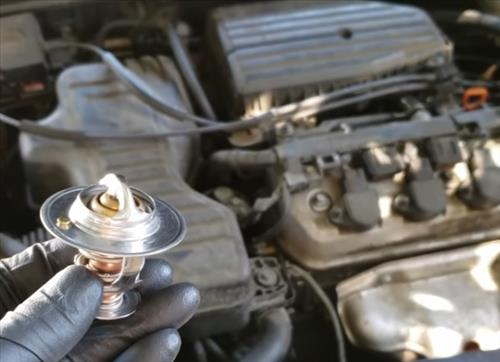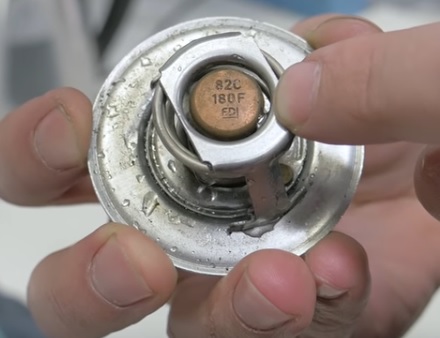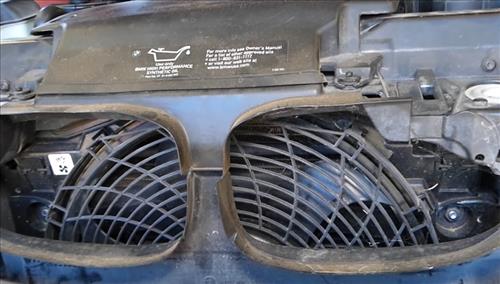
A bad engine thermostat can cause several symptoms, most commonly overheating, but other symptoms can also occur.
Symptoms include overheating, not warming up during cold weather, coolant leaks, and more.
What is an Engine Thermostat

A vehicle thermostat helps an engine heat up quickly and then helps to maintain a set temperature.
It will stay closed when the engine is warm and then open as the engine heats up.
When closed, the coolant is blocked from circulating and cooling the engine, allowing it to warm up quickly.
When open, the coolant can circulate through the radiator and engine, which will keep it cool.
7 Common Symptoms of a Bad or Failing Thermostat
- High Temperature Readings (Engine Overheating)
- Engine Not Heating Up When Weather is Cold
- Radiator Coolant Fan Stay on Constantly
- Erratic Changes in Temperature
- Unusual Noises from Engine Bay
- Coolant Leaking
- Heater Problems
he most common symptom of a bad thermostat is that it has failed and is stuck closed.
When it is stuck closed, no coolant will be able to circulate, which will cause the engine to overheat.
An infrared temperature thermometer can be used to see if it is stuck closed.
Temperature readings can be taken before, and after the thermostat, and if the temperature is much higher on the engine side, it is likely stuck closed.
See below for a video with more details.
If a thermostat is stuck open, the engine will not warm up quickly.
This is most noticeable when the weather is cold since it will take very long to get warm or not warm up at all.
When the weather is very cold, often the thermostat will only be slightly open to keep the engine at operating temperature.
If it is stuck all the way open, it will not be able to keep the engine at the correct temperature.

When the engine overheats, a very common symptom is, the radiator coolant fan stay on constantly.
If the fan is always on and in high mode, the engine may be overheating, which can be caused by a stuck thermostat.
A failing thermostat may work sporadically, causing erratic temperature changes in the engine.
Usually, they fail and are either stuck closed or open, but in some cases, they can work sporadically.
Pressure can build up when an engine is overheating, and when no coolant is circulating, strange noises are sometimes heard.
Often gurgling and sometimes hissing sounds can come from the engine bay, usually around the radiator and hoses.
Coolant can leak out of a very hot engine since the pressure builds up and often blows out the overflow.
If coolant is leaking out, it is a symptom of an overheating engine, often caused by a stuck closed thermostat.
A thermostat stuck open will not allow the engine to heat up, which will cause the heater to not work.
Most vehicles use the hot radiator fluid for heat, and if the engine is not getting warm, then the heater will not work.
How to Test an Engine Thermostat
A common method to test an engine thermostat is to read the temperature before and after the thermostat.
The engine is warmed up to operating temperature, and temperature readings are taken, usually with an infrared thermometer.
If it is stuck closed, the heat will be much higher on the engine side since the coolant is not circulating.
If it is stuck open, the temperature will not rise to the operating temperature and will stay below the recommended temperature.